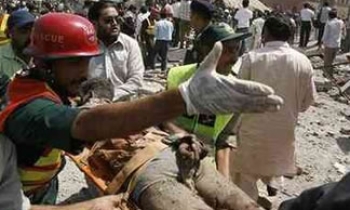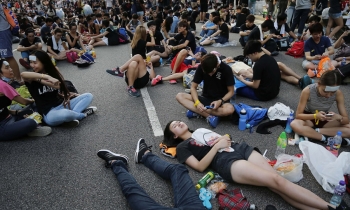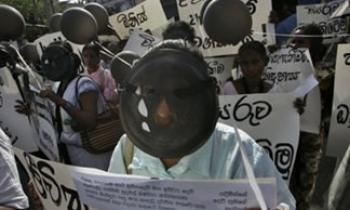CAIRO, Egypt - Press freedom is quickly losing ground in the Middle East as authoritarian governments retreat from liberalization undertaken early in the Bush administration's push for democracy, the Committee to Protect Journalists said Monday.
The annual report paints a grim picture of diminishing press freedoms worldwide, with Middle Eastern countries among the worst offenders.
Just two years ago, media advocates had hailed Lebanon, Egypt and Morocco for taking steps toward greater press freedom. Now, those and other Arab countries are inching back on recent changes, though the report noted that many journalists are resisting government restrictions at great personal risk. Journalists and activists have held protests in several Arab capitals in spite of government intimidation and the rollback of legal protections for the press.
In Egypt, journalists uncovered electoral fraud, investigated government corruption and shattered the long-held taboo of criticizing President Hosni Mubarak and his family. More than 20 newspapers participated in a one-day strike demanding that Mubarak fulfill promises to remove most press-related criminal offenses from the books, eliciting praise from CPJ.
"The circle of journalists challenging the government has been widening, and the number of Arabic-language newspapers has risen," said Kamal Labidi, a CPJ researcher who released the latest findings at a news conference in Cairo. "What is promising is that the determination of journalists is increasing."
Still, some Egyptian journalists questioned any description of Egypt, one of the closest U.S. allies in the region, as a "promising" example of a country where researchers found such incremental progress as the proliferation of opposition newspapers. Egypt's airwaves are still strictly controlled by the government.
"The ceiling of press freedom has risen, yes, but the threats and the hauling us to court also has increased," said Wael el-Ibrashi, the editor of two Cairo-based opposition weeklies who's facing more than 60 lawsuits related to his anti-government reporting. "Government officials still keep the information in an iron box, and we are exhausted in the search for information."
Last month, Egyptian security officials detained a producer for the Al-Jazeera satellite channel as she was returning to the channel's headquarters in Qatar to finish a documentary about torture in Egyptian prisons. Security forces also zeroed in on bloggers after a series of surreptitiously recorded video clips of Egyptians allegedly enduring police torture were posted on the Internet.
In the rest of the Middle East, state-run media dominate the landscape, with little tolerance for opposition or independent press. Libya and Syria are on CPJ's list of the most censored nations, along with North Korea, Cuba and Burma.
In 2006, journalists faced steep fines in Morocco for criticizing the monarchy, politicians and religious figures. Saudi Arabia banned a popular opposition columnist, while religious extremists roughed up other writers at a seminar on censorship. In Sudan, authorities detained and allegedly beat journalists, and gunmen kidnapped and beheaded an editor who had republished a story questioning the Prophet Muhammad's ancestry.
There was a series of brutal assaults against independent journalists in Yemen. And the hard-line government of Iran's Mahmoud Ahmadinejad has "turned the screws on press freedom and intimidated critical journalists into silence or self-censorship," according to the CPJ report.
The CPJ's annual "Attacks on the Press" also called Iraq the most dangerous place in the world for journalists for the fourth consecutive year. A record 32 journalists and 15 media support staff were killed in Iraq in the past year, bringing the total to 129 members of the press killed since the U.S.-led invasion in 2003.
One journalist and one media worker also were killed and several reporters suffered injuries from Israeli fire during the war in Lebanon last summer. During the 34-day conflict between Israel and Hezbollah militants, television stations and other media facilities were demolished in Israeli airstrikes. Journalists also reported receiving intimidation from Hezbollah and death threats if they reported on the militant Islamist group's weaponry.
El Naggar is a special correspondent in the McClatchy Cairo bureau.









